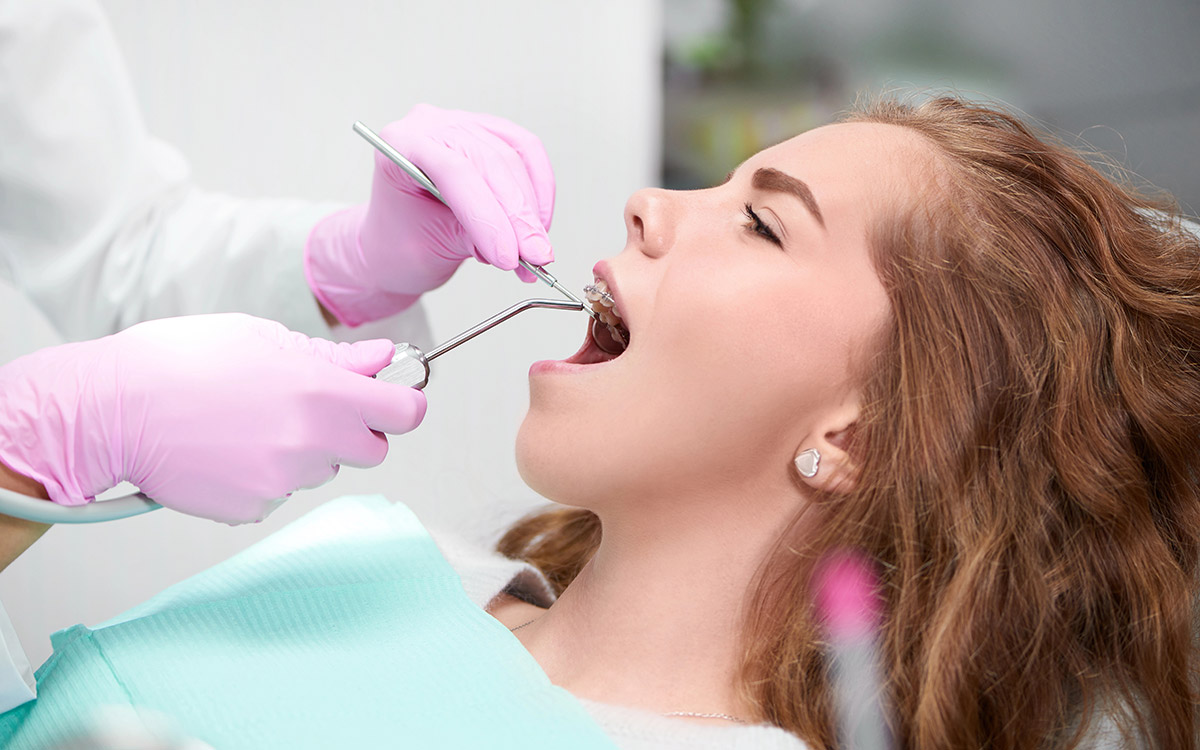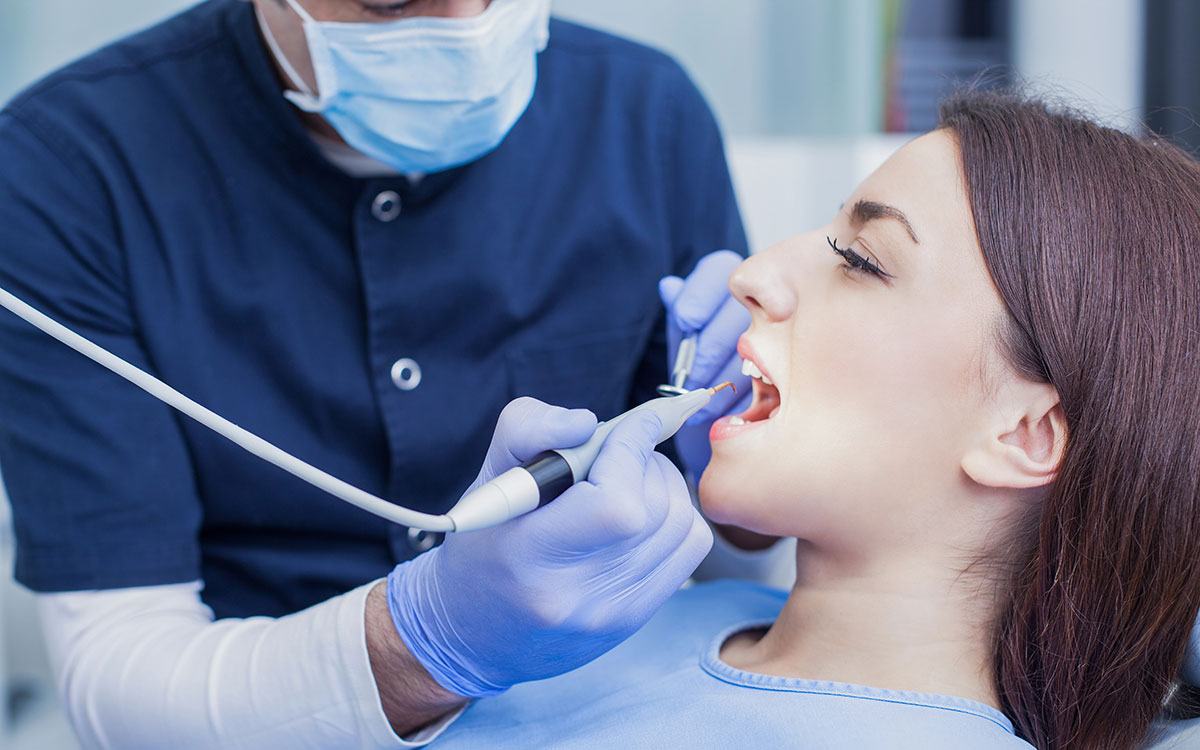According to the National Eating Disorders Association, more than 10 million Americans suffer from severe eating disorders. This affects overall body health while putting strain on patients’ mental health.
The biggest concern with eating disorders is body health and weight. Patients will notice drastic changes in their overall health since they are not getting sufficient nutrients to keep the body healthy. Additionally, it dramatically affects their self-confidence, and many patients have trouble loving themselves, which takes a negative toll on their mental health.
Eating disorders also affect a major body part that most people fail to consider, the mouth. Dietary habits play a crucial role in your overall dental health. What you eat will affect how healthy your teeth, gums, and tongue are.
Similarly, eating styles will determine overall oral health and the risk of developing dental diseases. Anorexia, bulimia, and other eating disorders can affect your dental health. The information below will highlight what various eating disorders do to your teeth, tongue, and gums.
Anorexia And Dental Health
Anorexia nervosa is the most known eating disorder that afflicts millions all over the globe. This disorder affects adolescents and young adults, primarily women. The condition develops when the patient views themselves as overweight. It leads to constantly monitoring their weight, measuring calories, and avoiding food even if they are severely underweight.
Anorexia patients exercise excessively to keep their weight down, diet and fast, or binge eat, then purge by vomiting and laxatives. In either case, the actions affect the body and mouth.
Purging exposes the teeth and mouth to harsh stomach acids that erode the enamel, leading to teeth sensitivity and dental infections. Additionally, malnutrition makes the immune system too weak to fight dental diseases meaning the patients could suffer from decay, bad breath, gum diseases, and other affiliations.
Prolonged neglecting leads to tooth loss and a weak jaw bone. Anorexia habits could also affect the tongue and mouth tissues, causing sores and cuts on the surfaces due to exposure to high acidity.
Bulimia And Dental Health
Bulimia is an equally known eating disorder that develops during adolescence and early adulthood. It is also more common among women than men.
Bulimia patients eat large amounts of food during a single time frame until they become painfully full. Patients can eat any food during this period, but most go for the foods they would normally avoid.
After this, the patient goes through an intense purging process through vomiting, laxatives, excessive exercises, diuretics, and enemas.
Bulimia leads to similar problems as anorexia. The lack of bodybuilding and healing nutrients in the body makes the mouth more susceptible to infections. Patients will develop gum diseases, bacterial infections, tooth decay, and other dental conditions.
If the patient constantly throws up, the stomach acids will erode the enamel teeth leading to sensitivity and yellowing. Enamel erosion means your teeth will be more prone to cracking and breaking, exposing the inner layers to bacteria and harmful substances. With time, patients could suffer permanent tooth loss.
Continuous purging leads to swollen salivary glands visible on either side of the cheek. Some patients also develop chronic dry mouth, followed by sores and tears due to high acidity levels.
Binge Eating Disorder And Dental Health
This disorder is quite common in the United States. Like other eating disorders, it starts during adolescence and early adulthood.
Patients will eat large amounts of food during a short period. They will feel a lack of control and thus do not restrict any types of food. Similarly, they will not use purging behaviors to account for binge eating.
This eating disorder causes tooth decay, bad breath, and gum infections. Since patients do not control or observe what they eat, they expose the mouth to sugar and acidic content. Excessive sugar and mouth bacteria form an acid that erodes the enamel triggering decay.
Rarely do patients drink water, so any acidic drinks such as sodas and energy drinks will also erode the enamel. It could also lead to dry mouth as excessive intake of sugary beverages dehydrates the mouth.
Dry mouth can also occur because the patients develop diabetes due to poor diet. High sugar content in the saliva from diabetes leads to dry mouth, triggering sores and damaged tissues. Overall, poor nutritional choices weaken the teeth and damage the gum significantly.
Pica And Dental Health
Pica is a lesser-known eating disorder in children, adolescents, and adults. The most afflicted are people with mental illnesses, pregnant women, and young children. Patients will eat things not considered food, such as soil, chalk, soap, wool, cornstarch, detergents, steel wool, and paper.
For some, it is considered a normal part of culture and religion. Similarly, some experts believe the condition is linked to nutritional deficiencies. Still, it has adverse effects on the body as patients risk poisoning, nutritional deficiencies, and digestive tract injury. Similarly, it could be fatal, depending on what the patient ate.
Most of the non-food items pica patients eat are abrasive and can cause the teeth to break. For example, those who eat ice, stones or rocks, metal objects, and steel wool can sustain scratches and cracks on the teeth.
Eating certain substances like hair will also irate the teeth, lips, and gum. Any patient who consumes paint, dirt, and soil exposes their teeth to bacteria and other harmful substances. It will trigger infections that are hard to treat. The longer they eat dirt, the more bacteria will grow, leading to permanent tooth loss.
Treatment For Patients
Patients with severe dental issues due to eating disorders first need help to treat their afflictions. Eating disorders are a mental challenge, so patients first need to improve mental wellness, and others should follow. Take your patient to a therapist or rehabilitation center if necessary.
Early detection of dental diseases improves the chances of treatment and recovery. Therefore, ensure you look out for signs of decay, gum disease, mouth sores, dry mouth, and other affiliations. Then visit your dentist for proper treatment.
Self-diagnosis and treatment are never advisable. The best you can do is drink more water and brush your teeth at least twice a day.







